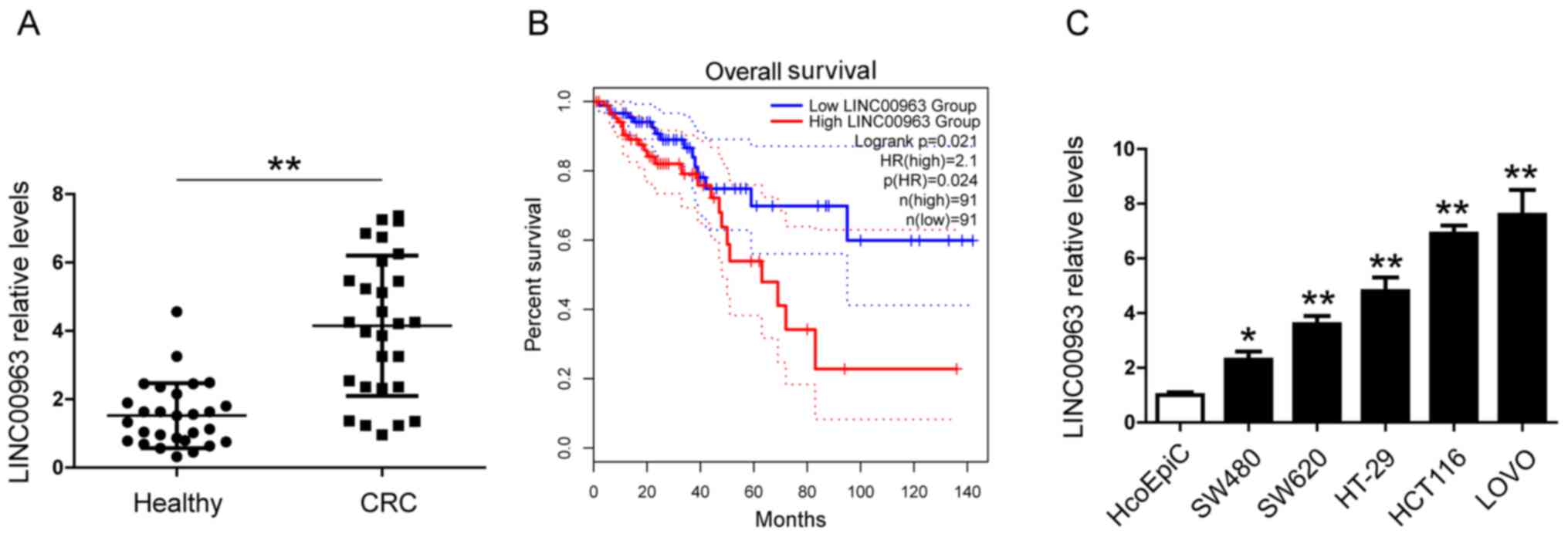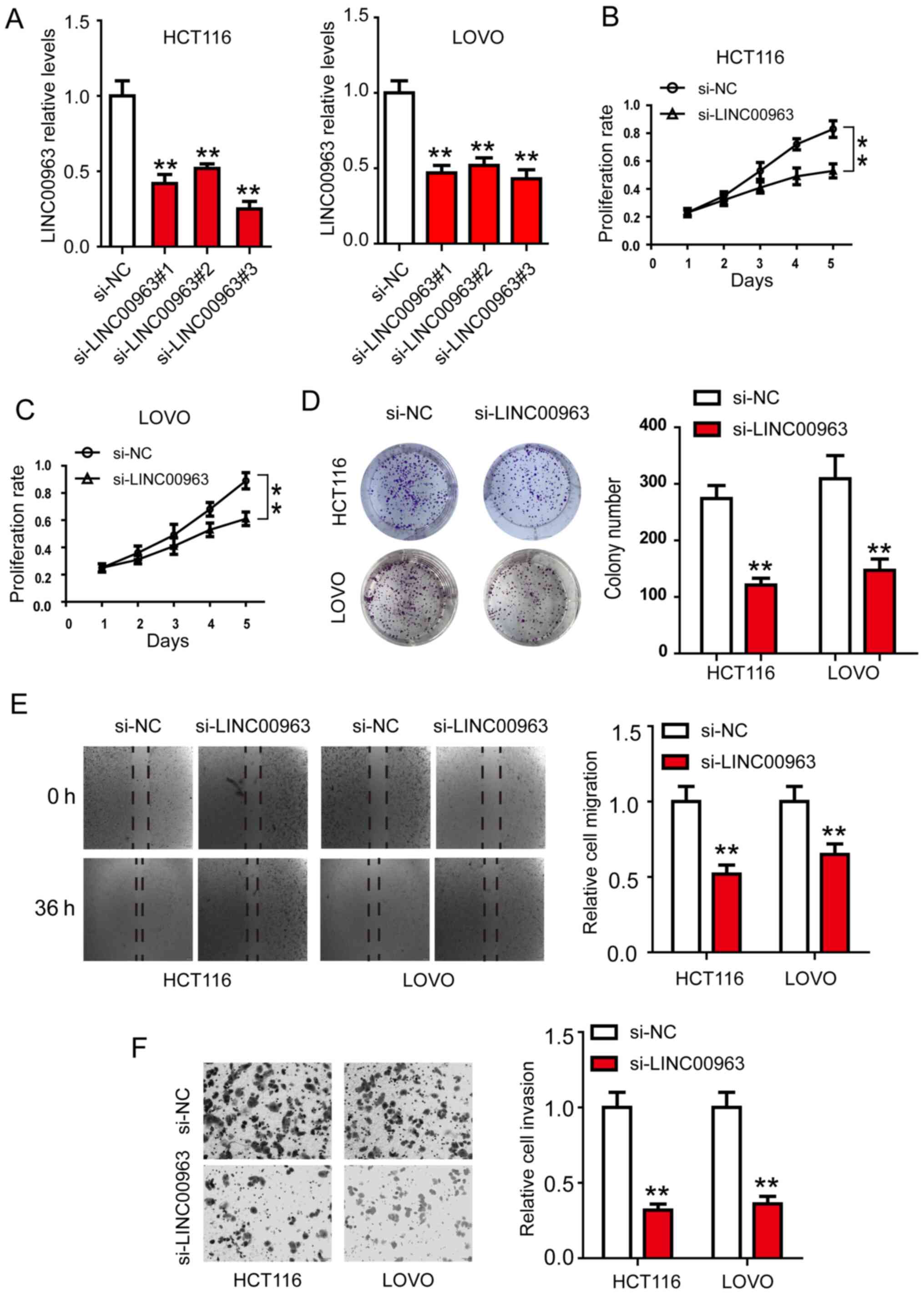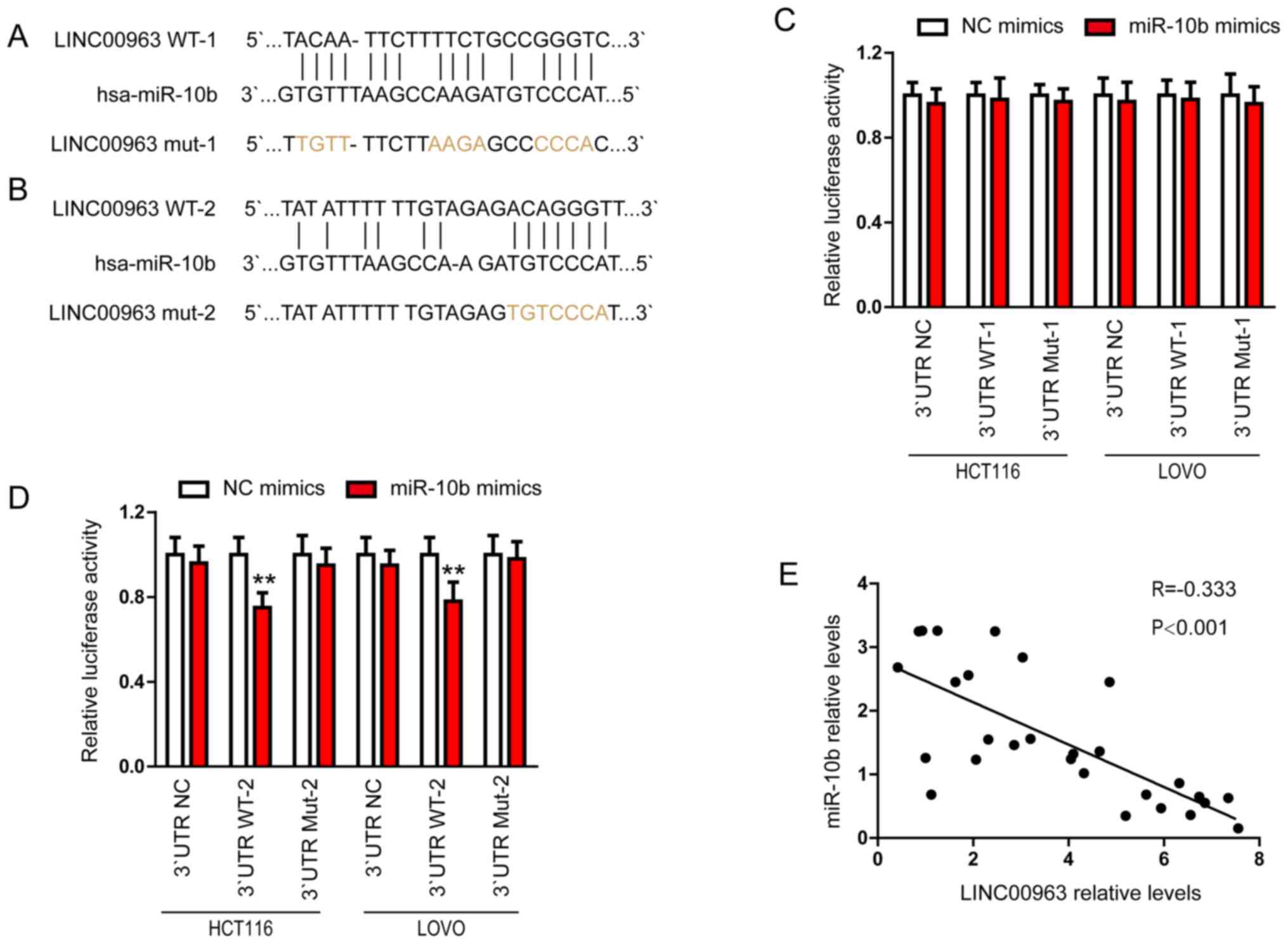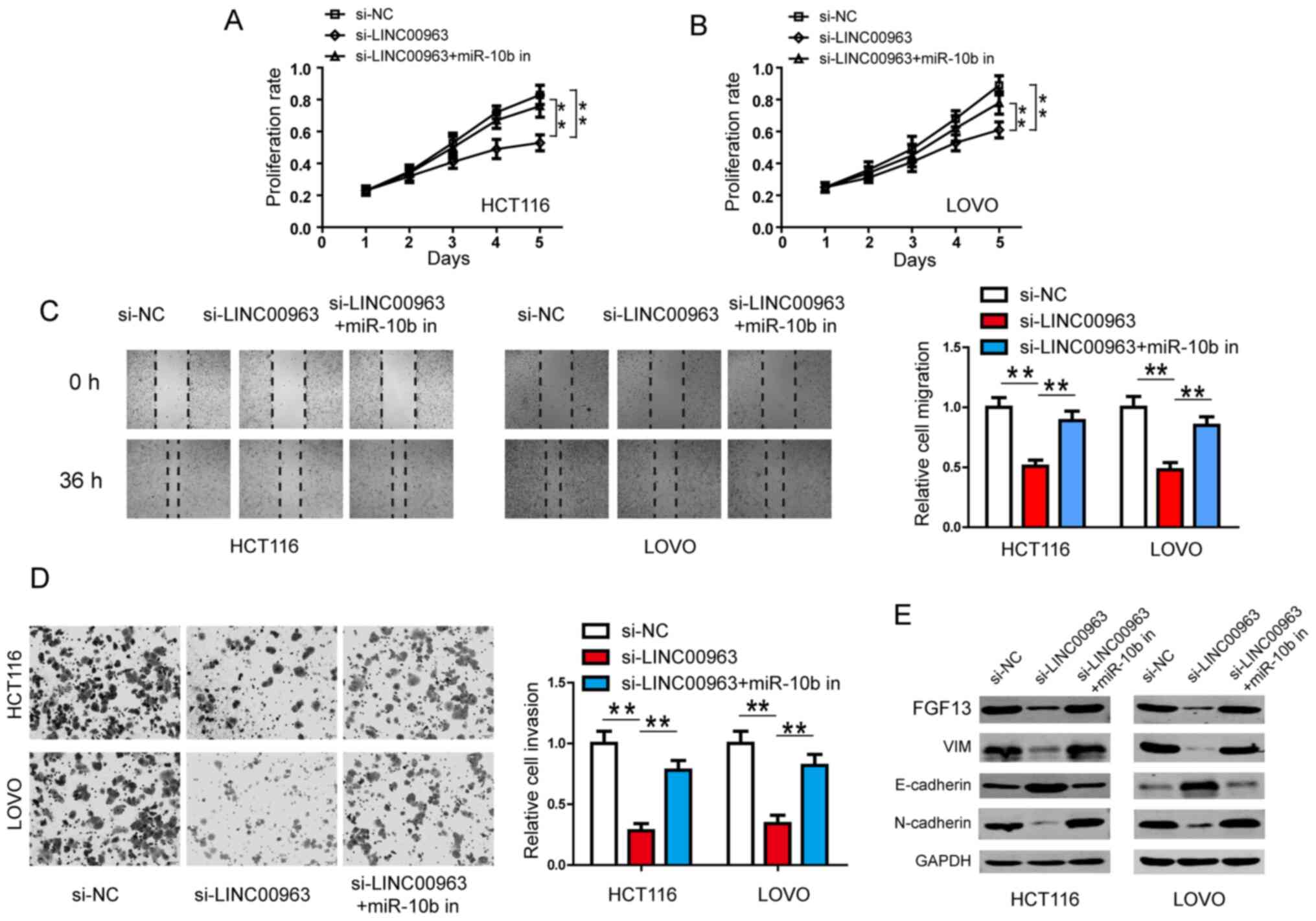|
1
|
Wu C: Systemic therapy for colon cancer.
Surg Oncol Clin N Am. 27:235–242. 2018. View Article : Google Scholar : PubMed/NCBI
|
|
2
|
Marotta G, Muto T, Benincasa G and De
Monaco A: Formyl peptide receptor 2 mediated chemotherapeutics drug
resistance in colon cancer cells. Point of view from
pharmacogenetics field. Eur Rev Med Pharmacol Sci. 22:1178–1179.
2018.PubMed/NCBI
|
|
3
|
Schreuders EH, Ruco A, Rabeneck L, Schoen
RE, Sung JJ, Young GP and Kuipers EJ: Colorectal cancer screening:
A global overview of existing programmes. Gut. 64:1637–1649. 2015.
View Article : Google Scholar : PubMed/NCBI
|
|
4
|
Dueland S, Hagness M, Line PD, Guren TK,
Tveit KM and Foss A: Is liver transplantation an option in
colorectal cancer patients with nonresectable liver metastases and
progression on all lines of standard chemotherapy? Ann Surg Oncol.
22:2195–2200. 2015. View Article : Google Scholar : PubMed/NCBI
|
|
5
|
Cleven AH, Derks S, Draht MX, Smits KM,
Melotte V, Van Neste L, Tournier B, Jooste V, Chapusot C,
Weijenberg MP, et al: CHFR promoter methylation indicates poor
prognosis in stage II microsatellite stable colorectal cancer. Clin
Cancer Res. 20:3261–3271. 2014. View Article : Google Scholar : PubMed/NCBI
|
|
6
|
Chen P, Xi Q, Wang Q and Wei P:
Downregulation of microRNA-100 correlates with tumor progression
and poor prognosis in colorectal cancer. Med Oncol. 31:2352014.
View Article : Google Scholar : PubMed/NCBI
|
|
7
|
Yang G, Lu X and Yuan L: lncRNA: A link
between RNA and cancer. Biochim Biophys Acta. 1839:1097–1109. 2014.
View Article : Google Scholar : PubMed/NCBI
|
|
8
|
Jarroux J, Morillon A and Pinskaya M:
History, discovery, and classification of lncRNAs. Adv Exp Med
Biol. 1008:1–46. 2017. View Article : Google Scholar : PubMed/NCBI
|
|
9
|
Akhade VS, Pal D and Kanduri C: Long
noncoding RNA: Genome organization and mechanism of action. Adv Exp
Med Biol. 1008:47–74. 2017. View Article : Google Scholar : PubMed/NCBI
|
|
10
|
Guttman M, Russell P, Ingolia NT, Weissman
JS and Lander ES: Ribosome profiling provides evidence that large
noncoding RNAs do not encode proteins. Cell. 154:240–251. 2013.
View Article : Google Scholar : PubMed/NCBI
|
|
11
|
Rinn JL and Chang HY: Genome regulation by
long noncoding RNAs. Annu Rev Biochem. 81:145–166. 2012. View Article : Google Scholar : PubMed/NCBI
|
|
12
|
Zhao W, Geng D, Li S, Chen Z and Sun M:
lncRNA HOTAIR influences cell growth, migration, invasion, and
apoptosis via the miR-20a-5p/HMGA2 axis in breast cancer. Cancer
Med. 7:842–855. 2018. View Article : Google Scholar : PubMed/NCBI
|
|
13
|
Jiang N, Meng X, Mi H, Chi Y, Li S, Jin Z,
Tian H, He J, Shen W, Tian H, et al: Circulating lncRNA XLOC_009167
serves as a diagnostic biomarker to predict lung cancer. Clin Chim
Acta. 486:26–33. 2018. View Article : Google Scholar : PubMed/NCBI
|
|
14
|
Han Q, Xu L, Lin W, Yao X, Jiang M, Zhou
R, Sun X and Zhao L: Long noncoding RNA CRCMSL suppresses tumor
invasive and metastasis in colorectal carcinoma through
nucleocytoplasmic shuttling of HMGB2. Oncogene. 38:3019–3032. 2019.
View Article : Google Scholar : PubMed/NCBI
|
|
15
|
Huang L, Lin H, Kang L, Huang P, Huang J,
Cai J, Xian Z, Zhu P, Huang M, Wang L, et al: Aberrant expression
of long noncoding RNA SNHG15 correlates with liver metastasis and
poor survival in colorectal cancer. J Cell Physiol. 234:7032–7039.
2019. View Article : Google Scholar : PubMed/NCBI
|
|
16
|
Shi J, Zhong X, Song Y, Wu Z, Gao P, Zhao
J, Sun J, Wang J, Liu J and Wang Z: Long non-coding RNA RUNX1-IT1
plays a tumour-suppressive role in colorectal cancer by inhibiting
cell proliferation and migration. Cell Biochem Funct. 37:11–20.
2019. View
Article : Google Scholar : PubMed/NCBI
|
|
17
|
Liu Y, Yang Y, Li L, Liu Y, Geng P, Li G
and Song H: lncRNA SNHG1 enhances cell proliferation, migration,
and invasion in cervical cancer. Biochem Cell Biol. 96:38–43. 2018.
View Article : Google Scholar : PubMed/NCBI
|
|
18
|
Li Z, Qin X, Bian W, Li Y, Shan B, Yao Z
and Li S: Exosomal lncRNA ZFAS1 regulates esophageal squamous cell
carcinoma cell proliferation, invasion, migration and apoptosis via
microRNA-124/STAT3 axis. J Exp Clin Cancer Res. 38:4772019.
View Article : Google Scholar : PubMed/NCBI
|
|
19
|
Jin FS, Wang HM and Song XY: Long
non-coding RNA TCF7 predicts the progression and facilitates the
growth and metastasis of colorectal cancer. Mol Med Rep.
17:6902–6908. 2018.PubMed/NCBI
|
|
20
|
Di Cecilia S, Zhang F, Sancho A, Li S,
Aguiló F, Sun Y, Rengasamy M, Zhang W, Del Vecchio L, Salvatore F,
et al: RBM5-AS1 is critical for self-renewal of colon cancer
stem-like cells. Cancer Res. 76:5615–5627. 2016. View Article : Google Scholar : PubMed/NCBI
|
|
21
|
Wang L, Cho KB, Li Y, Tao G, Xie Z and Guo
B: Long noncoding RNA (lncRNA)-mediated competing endogenous RNA
networks provide novel potential biomarkers and therapeutic targets
for colorectal cancer. Int J Mol Sci. 20:57582019. View Article : Google Scholar
|
|
22
|
Fan CN, Ma L and Liu N: Systematic
analysis of lncRNA-miRNA-mRNA competing endogenous RNA network
identifies four-lncRNA signature as a prognostic biomarker for
breast cancer. J Transl Med. 16:2642018. View Article : Google Scholar : PubMed/NCBI
|
|
23
|
Wu JH, Tian XY, An QM, Guan XY and Hao CY:
LINC00963 promotes hepatocellular carcinoma progression by
activating PI3K/AKT pathway. Eur Rev Med Pharmacol Sci.
22:1645–1652. 2018.PubMed/NCBI
|
|
24
|
Zhang N, Zeng X, Sun C, Guo H, Wang T, Wei
L, Zhang Y, Zhao J and Ma X: lncRNA LINC00963 promotes
tumorigenesis and radioresistance in breast cancer by sponging
miR-324-3p and inducing ACK1 expression. Mol Ther Nucleic Acids.
18:871–881. 2019. View Article : Google Scholar : PubMed/NCBI
|
|
25
|
Wang J, Li C, Xu L, Yang C and Zhang X:
miR-1193 was sponged by LINC00963 and inhibited cutaneous squamous
cell carcinoma progression by targeting SOX4. Pathol Res Pract.
215:1526002019. View Article : Google Scholar : PubMed/NCBI
|
|
26
|
Zhou Y, Yin L, Li H, Liu LH and Xiao T:
The lncRNA LINC00963 facilitates osteosarcoma proliferation and
invasion by suppressing miR-204-3p/FN1 axis. Cancer Biol Ther.
20:1141–1148. 2019. View Article : Google Scholar : PubMed/NCBI
|
|
27
|
Jiao H, Jiang S, Wang H, Li Y and Zhang W:
Upregulation of LINC00963 facilitates melanoma progression through
miR-608/NACC1 pathway and predicts poor prognosis. Biochem Biophys
Res Commun. 504:34–39. 2018. View Article : Google Scholar : PubMed/NCBI
|
|
28
|
Livak KJ and Schmittgen TD: Analysis of
relative gene expression data using real-time quantitative PCR and
the 2(-Delta Delta C(T)) method. Methods. 25:402–408. 2001.
View Article : Google Scholar : PubMed/NCBI
|
|
29
|
Song JJ and Li W: miR-10b suppresses the
growth and metastasis of colorectal cancer cell by targeting FGF13.
Eur Rev Med Pharmacol Sci. 23:576–587. 2019.PubMed/NCBI
|
|
30
|
Esteller M: Non-coding RNAs in human
disease. Nat Rev Genet. 12:861–874. 2011. View Article : Google Scholar : PubMed/NCBI
|
|
31
|
Liz J and Esteller M: lncRNAs and
microRNAs with a role in cancer development. Biochim Biophys Acta.
1859:169–176. 2016. View Article : Google Scholar : PubMed/NCBI
|
|
32
|
Slack FJ and Chinnaiyan AM: The role of
non-coding RNAs in oncology. Cell. 179:1033–1055. 2019. View Article : Google Scholar : PubMed/NCBI
|
|
33
|
Kopp F and Mendell JT: Functional
classification and experimental dissection of long noncoding RNAs.
Cell. 172:393–407. 2018. View Article : Google Scholar : PubMed/NCBI
|
|
34
|
van Heesch S, van Iterson M, Jacobi J,
Boymans S, Essers PB, de Bruijn E, Hao W, MacInnes AW, Cuppen E and
Simonis M: Extensive localization of long noncoding RNAs to the
cytosol and mono- and polyribosomal complexes. Genome Biol.
15:R62014. View Article : Google Scholar : PubMed/NCBI
|
|
35
|
Evans JR, Feng FY and Chinnaiyan AM: The
bright side of dark matter: lncRNAs in cancer. J Clin Invest.
126:2775–2782. 2016. View Article : Google Scholar : PubMed/NCBI
|
|
36
|
Lin C and Yang L: Long noncoding RNA in
cancer: Wiring signaling circuitry. Trends Cell Biol. 28:287–301.
2018. View Article : Google Scholar : PubMed/NCBI
|
|
37
|
Sullenger BA and Nair S: From the RNA
world to the clinic. Science. 352:1417–1420. 2016. View Article : Google Scholar : PubMed/NCBI
|
|
38
|
Wang L, Han S, Jin G, Zhou X, Li M, Ying
X, Wang L, Wu H and Zhu Q: Linc00963: A novel, long non-coding RNA
involved in the transition of prostate cancer from
androgen-dependence to androgen-independence. Int J Oncol.
44:2041–2049. 2014. View Article : Google Scholar : PubMed/NCBI
|
|
39
|
Yu T, Zhao Y, Hu Z, Li J, Chu D, Zhang J,
Li Z, Chen B, Zhang X, Pan H, et al: Metalnc9 facilitates lung
cancer metastasis via a PGK1-activated AKT/mTOR pathway. Cancer
Res. 77:5782–5794. 2017. View Article : Google Scholar : PubMed/NCBI
|
|
40
|
Cesana M, Cacchiarelli D, Legnini I,
Santini T, Sthandier O, Chinappi M, Tramontano A and Bozzoni I: A
long noncoding RNA controls muscle differentiation by functioning
as a competing endogenous RNA. Cell. 147:358–369. 2011. View Article : Google Scholar : PubMed/NCBI
|
|
41
|
Bak RO and Mikkelsen JG: miRNA sponges:
Soaking up miRNAs for regulation of gene expression. Wiley
Interdiscip Rev RNA. 5:317–333. 2014. View Article : Google Scholar : PubMed/NCBI
|
|
42
|
Dey BK, Mueller AC and Dutta A: Long
non-coding RNAs as emerging regulators of differentiation,
development, and disease. Transcription. 5:e9440142014. View Article : Google Scholar : PubMed/NCBI
|
|
43
|
Kartha RV and Subramanian S: Competing
endogenous RNAs (ceRNAs): New entrants to the intricacies of gene
regulation. Front Genet. 5:82014. View Article : Google Scholar : PubMed/NCBI
|
|
44
|
Saliminejad K, Khorram Khorshid HR,
Soleymani Fard S and Ghaffari SH: An overview of microRNAs:
Biology, functions, therapeutics, and analysis methods. J Cell
Physiol. 234:5451–5465. 2019. View Article : Google Scholar : PubMed/NCBI
|
|
45
|
Hoek K, Rimm DL, Williams KR, Zhao H,
Ariyan S, Lin A, Kluger HM, Berger AJ, Cheng E and Trombetta ES:
Expression profiling reveals novel pathways in the transformation
of melanocytes to melanomas. Cancer Res. 64:5270–5282. 2004.
View Article : Google Scholar : PubMed/NCBI
|
|
46
|
Missiaglia E, Dalai I, Barbi S, Beghelli
S, Falconi M, della Peruta M, Piemonti L, Capurso G, Di Florio A,
delle Fave G, et al: Pancreatic endocrine tumors: expression
profiling evidences a role for AKT-mTOR pathway. J Clin Oncol.
28:245–255. 2010. View Article : Google Scholar : PubMed/NCBI
|
|
47
|
Bublik DR, Bursać S, Sheffer M, Oršolić I,
Shalit T, Tarcic O, Kotler E, Mouhadeb O, Hoffman Y, Fuchs G, et
al: Regulatory module involving FGF13, miR-504, and p53 regulates
ribosomal biogenesis and supports cancer cell survival. Proc Natl
Acad Sci USA. 114:E496–E505. 2017. View Article : Google Scholar : PubMed/NCBI
|


















